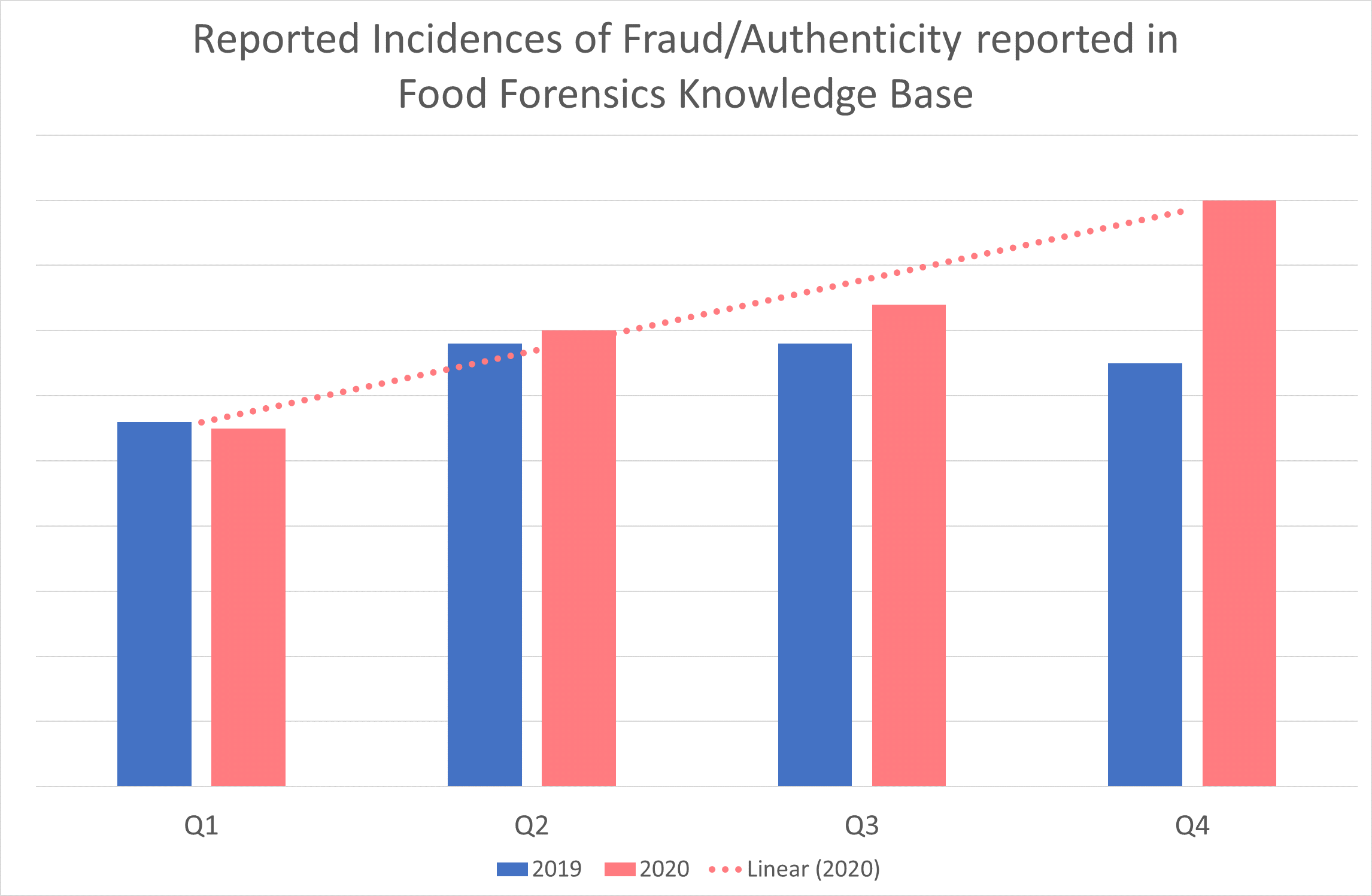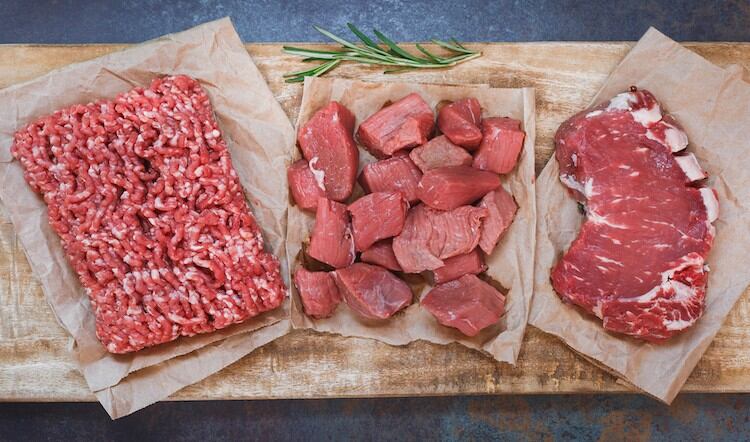An ideal climate for food fraud?
2020 undoubtedly brought unprecedented supply chain challenges, with many predicting we would see increases in food fraud, but is this really something we should be worrying about? We think so.
A review of the food fraud and authenticity issues reported in the Food Forensics Knowledge Base platform over the last 12 months demonstrates an increase of 12% on the previous year.
Perhaps of greater concern is the rate of increase in recorded incidences, with the last quarter of 2020 increasing by a staggering 38%, proof if it were needed that we have an ideal climate for fraud. Whether the supply chain impacts of Covid-19, border issues with Brexit, or both, it should serve as a call to arms for everyone in the food supply chain. Our guard is somewhat down.

The Perfect Storm
For fraud to happen there need to be certain conditions; an offender (criminal), a target (victim) and the opportunity. Brexit and the Covid-19 global pandemic have created the perfect storm and the ideal opportunity. Challenges to continuity of supply, vulnerable suppliers perhaps under financial pressure, might generate the likely offender...and the consumers insatiable demand and panic buying as we saw recently provides a suitable victim.
We often hear food fraud descried as a crime, it is, but be under no illusion – a fraudster is completely different to a criminal. Fraudsters are stealthy and cunning, they want to be liked, they plan, and they are often quite ingenious. So, we must put our guard up, and complacency should be a flag for potential risk, not a comfort blanket of confidence.
So, what should we be doing, and what raw materials should we be looking at? Virtually every material can be ‘value engineered’ somehow, be it lower quality, diluted, or substituted. Everything is a potential risk, and fraudsters are unpredictable.
Over the last 6 months we have seen resurgence of some well know historical issues, such as more horse meat, irradiation, illegal dyes, origin and production system substitution, dilution, along with some less common and opportunistic, such as contaminated and substandard raw materials etc.
Could your business be a soft target?
This might be the case if…
- You rely on long standing and ‘trusted’ suppliers
- You only test materials you believe to be ‘high risk’.
- You only test what your customer requests you to test.
- If others using that raw material test and you don’t.
What can you do to defend your business? Deterrent is as powerful as Detection.
The most effective intervention is unpredictability. Horizon scan and be armed with good insight. Back this up with a wide range of interventions from quality monitoring against up-to-date specifications, supply chain mapping, audits, and combine with targeted testing. Crucially tell your suppliers that you are doing it! Your VACCP should be a plan not a document.
Be proactive with your approach to effective deterrence and detection and you are less likely to be the one with a significant issue, and if suppliers know you are looking, they might just look for a softer target.




